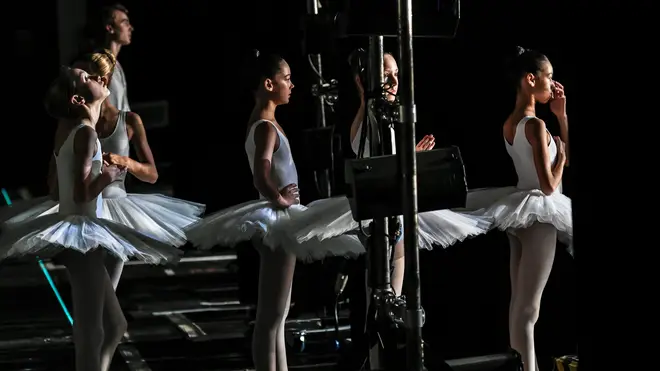On Air Now
Calm Classics with Ritula Shah 10pm - 1am
9 February 2021, 12:32 | Updated: 9 February 2021, 12:59

Following an open letter and petition from its dancers, the historic opera company is facing up to racism and making representative and inclusive changes.
Ban ‘blackface’ and ‘yellowface’. Don’t use the N-word in operas. And allow us to wear tights and pointe shoes that match the colours of our skin.
So demanded dancers at the prestigious Paris Opera when they circulated an open letter and petition, signed by hundreds of the company’s dancers, calling for an end to racist practices at the historic institution.
Now Paris Opera has responded to its members’ calls for change, and an end to “the silence that surrounds racism”. The company has released an in-depth, 66-page report, and promised to tackle the “insidious racism” it has been criticised for.
Read more: Paris Opera considering blackface ban after staff pressure to end racism >

Paris Opera’s artistic director, Alexander Neef, said in a press conference that the company would actively deal with racist caricatures in core ballet and opera repertoire, which have been taken for granted for decades.
Taking cues from staff pressure and the resulting report, Neef has said the company will ban ‘blackface’ and ‘yellowface’ and make efforts to actively recruit ethnically diverse and representative dancers.
“This is not the end, it’s the beginning,” Neef told The New York Times, detailing the formation of a diversity and inclusion officer and committee to advise on reforms.
Read more: First Black female dancer at Berlin’s Staatsballett had to ‘white up’ for Swan Lake >

Nigerian 11-year-old's ballet dancing skills go viral
Read more: ‘Loneliness has been a constant factor in my life’ – ballet dancer Carlos Acosta >
Works such as La Bayadère and The Nutcracker will remain in the company’s repertoire – the former of which includes ‘Danse des Négrillons’ and the latter which includes racist stereotypes in its ‘Chinese variation’ if not treated in the right way – but with changes in choreography and costumes being actively explored.
The report, which outlines Paris Opera’s “duty to represent on our stages the diversity that exists in our world” aimed to examine the “ballet blanc” tradition of female dancers all wearing white tutus or dresses, as well as a host of other race-related issues.
The enlisted experts consulted both people internal to the company, and external opinions, for the report.